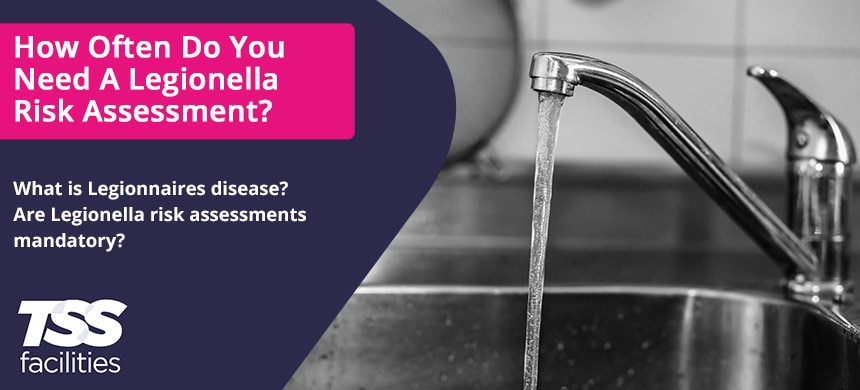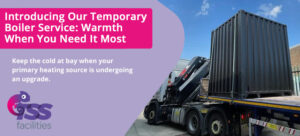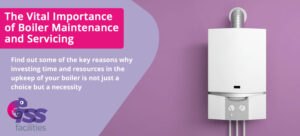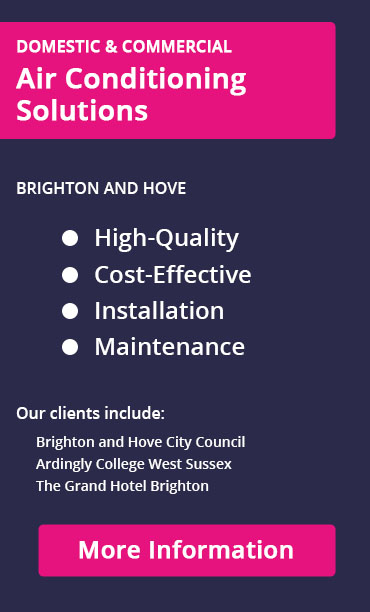Jump to a section:
Water is an essential part of life. It will be used throughout your building for drinking, plumbing, air conditioning, refrigeration and more. It absolutely must be clean and not be a breeding ground for bacteria or Legionella.
What is Legionnaires disease?
Legionnaires disease was first identified following a large outbreak of pneumonia among people who attended an American legion convention in 1976. A previously unrecognised bacterium was isolated from the lung tissue samples which were subsequently named Legionella Pneumophila.
It is normally contracted by inhaling legionella bacteria, either in tiny droplets of water (aerosols) or in droplet nuclei (the particles left after the water has evaporated). It cannot be passed from one person to another.
It is a serious illness that can be fatal if not treated quickly and effectively. It’s caused by bacteria called Legionella pneumophila. This bacterium lives in water systems such as cooling towers, showers, taps and toilets.
If you’re exposed to this bacteria it may cause pneumonia-like symptoms including fever, coughs and headaches. In severe cases of infection people with weakened immune systems are at greater risk of developing complications like kidney failure. It has increased over recent years and there are now more than 100 cases per year in England alone.
Are Legionella risk assessments mandatory?
Current legislation requires that every commercial premises in the UK must have a valid Legionella risk assessment. Failure to comply could mean immediate closure of your premises, prosecution and even imprisonment in the event of an outbreak.
How often should a Legionella Risk Assessment be undertaken?
A risk assessment can be used to determine the length of time that you need to follow up on your water system. The risk assessment should include all aspects of your plumbing and HVAC systems, including any potential sources of contamination such as cooling towers or air handling units. If there are no known problems with these areas, then it may not be necessary to perform an annual inspection.
If you are using an existing building with no history of Legionnaires’ disease outbreaks or if you have not had any previous assessments done for this particular site, then we recommend doing one every one to three years. However, if there has been at least one outbreak within the last five years, then we would suggest doing one every year.
What do we need to know about water monitoring?
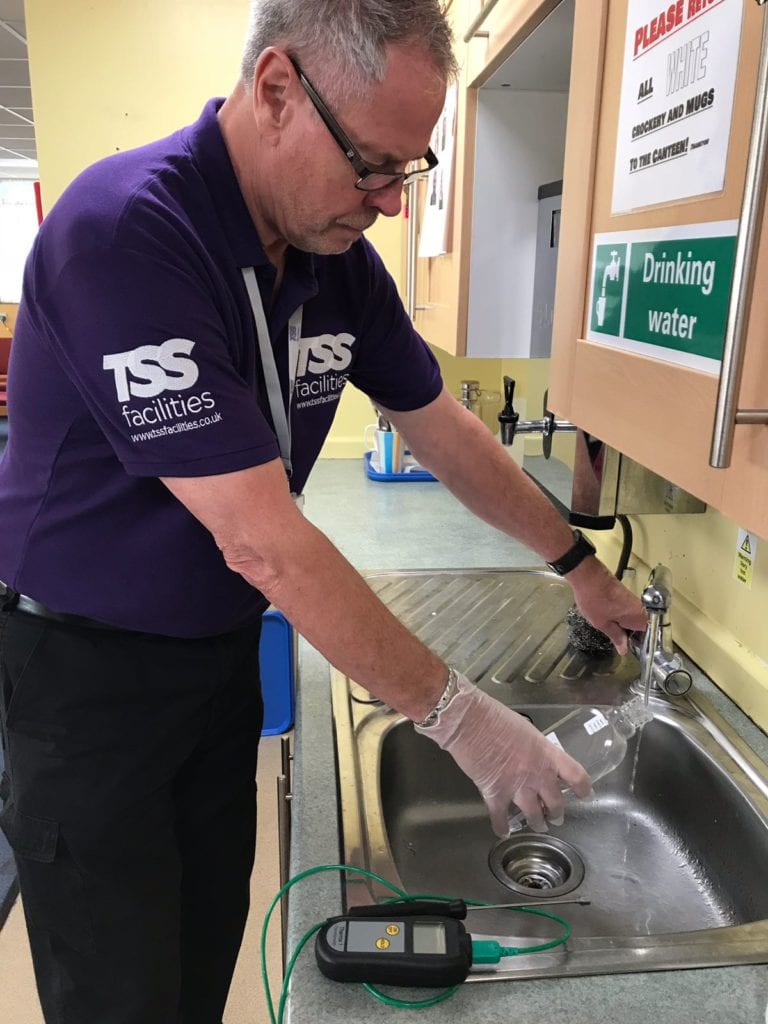
As well as the risk assessments, your building needs to be continually monitored.
TSS offers a wide range of services to monitor your water. Monthly, bi-monthly, quarterly, six monthly or annual visits can be made and recorded in accordance with L8 Approved Code of Practice.
This includes:
- Online Legionella monitoring systems
- Microbiological water sampling
We can offer training solutions which cater to your requirements, whether it is on a one to one basis or delivering to groups of staff. Site training can also be provided allowing nominated people to manage the log books
Who can carry out a legionella risk assessment?
The Health & Safety Executive (HSE) has published guidance on who can undertake this task. This includes anyone working within their own organisation, as well as those employed by others. The HSE also provides information about how to find suitable people to help you assess your risk.
You can appoint a person within the company who is responsible for managing the health and safety duties or hire a specialist company that is registered with the Legionella Control Association.
TSS Facilities is a registered member of the LCA and ISO9001 quality assured company. We are regularly audited and assessed by them for compliance with their Code of Conduct for Service Providers and the Service Standards for those legionella control services.
The business activities covered by our Legionella Control Association membership are:
- Legionella Risk Assessment
- Chemical water treatment services, including chemicals, dosing and control systems, on-site analytical and monitoring services
- Hot and cold water monitoring and inspection services
- Cleaning and disinfecting including refurbishment
- Analytical services
- Training
- Plant and Equipment Services
If I am not storing hot or cold water in my building, do I need to carry out a risk assessment?
Yes, as there maybe other factors in your building that increase the risks of legionella such as HVAC systems (air conditioning). In April 1985, 175 people in Stafford, England, were admitted to the District or Kingsmead Stafford Hospitals with chest infection or pneumonia. A total of 28 people died. Medical diagnosis showed that Legionnaires’ disease was responsible and the immediate epidemiological investigation traced the source of the infection to the air-conditioning cooling tower on the roof of Stafford District Hospital.
Dental Decontamination
Registered Managers of dental practices have an overriding general duty of care to ensure that the water supply, storage and distribution services at their practice complies with the best practice guidance given. As a registered member of LCA, the management systems we have developed and our compliance with the Code and Service Standards means that we are well placed to assist our clients in controlling the legionella risk associated with their water systems
- Provide a full Legionella risk assessment with schematic drawings, and identify and grade any risks
- Take samples of suspect water to test specifically for legionella and other bacteria
- Provide a full report which advises on how to control or eliminate the risk(s) identified
- Provide all remedial work necessary
…and more. Get in touch to find out how we can help you.
Get Your Legionella Risk Assessment
We offer a full range of services for all your facilities including water treatment, industrial heating, electrical services, air conditioning and ventilation installations, service and maintenance in Brighton, Sussex and surrounding areas. We provide a professional and highly rated service and we offer a free consultation for all new heating, air conditioning, electrical and refrigeration installations.
Contact us today for a free quote or general advice on the next steps for your business:
01273 719 111 or leave a message on our form.

